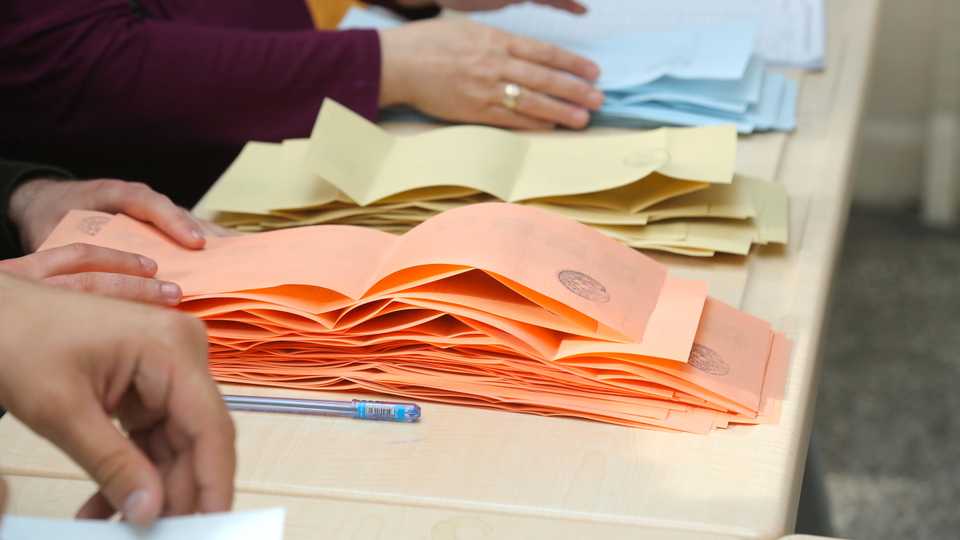
Turkey goes to the polls on March 31 2019, to elect local representatives. The polls are the first under Turkey’s new presidential system. Although there are no major variations between the current and previous local elections, political parties have formed the same alliances as they did for the parliamentary and presidential elections held in 2018.
Out of 81 provinces in Turkey, 30 are metropolitan municipalities containing over 750,000 residents. The most important three metropolitan municipalities are Istanbul, Ankara and Izmir.
What Turkey’s Mediterranean city of Hatay and southeastern cities Gaziantep and Mardin lack in size, they make up for in diversity – and are always intriguing ahead of elections.
All these provinces neighbour Syria and have diverse voting preferences.
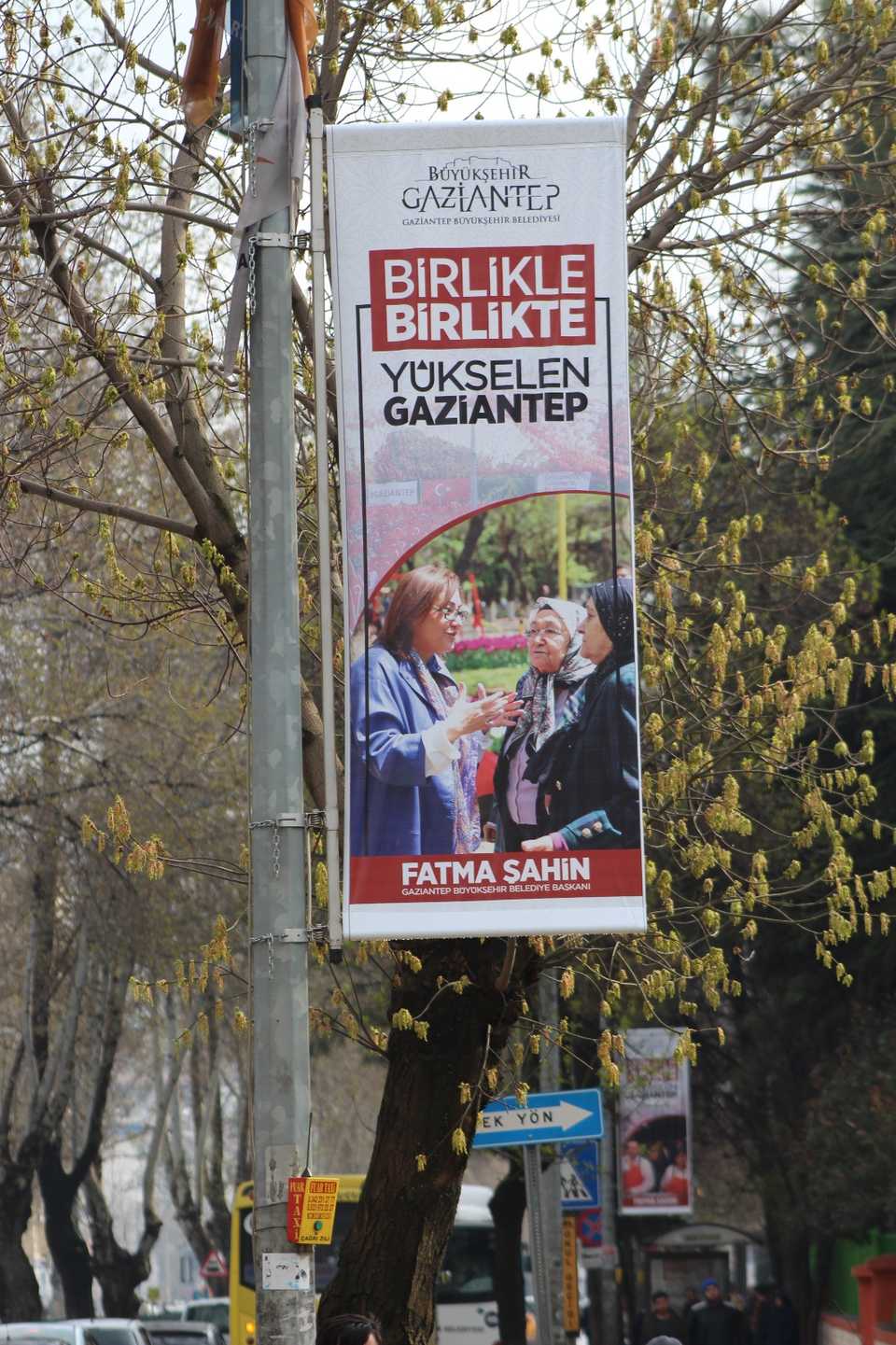
The southeastern Anatolian tiger: Gaziantep
Northeast of Hatay, about 170 kilometres away lies the province and its capital city of Gaziantep.
Gaziantep is Turkey’s fourth biggest industrial city. The province is known for its historical and diverse character and shares a southern border with Syria.
Gaziantep is an industrial centre in the city and attracts thousands of Turkish citizens from neighbouring provinces since it offers jobs and more developed and modern city.
The former local mayor candidate of what used to be the Welfare Party in the town of Birecik in 1994 (60 km away from Gaziantep’s centre) and an entrepreneur in the energy industry, Mustafa Cavvas, says that the biggest obstacles facing the city are misguided investment strategies and speculative economic attacks against Turkey and its economy.
“Gaziantepians are hardworking people. Different from many Anatolian towns, the rich of this city made their investment here and did not move to the capital Ankara or Turkey’s economic centre Istanbul. Thanks to them Gaziantep is the most industrial city of southeastern Turkey and provides dozens of thousands of jobs to locals and people who come here.”
Gaziantep hosts almost 430,000 Syrian refugees. This makes up to 21 percent of its two million population.
“The city offers jobs, investment and infrastructure. Though there are people who do not want Syrian refugees settling here, the majority of Gaziantep opened their arms to them. I think we should benefit and make them benefit [from our city].”
The AK Party candidate Fatma Sahin won with 54.7 percent in 2014 and will be running once again. Her opponents are the Nation’s Alliance candidate Ejder Demir and the DSP (Democratic Left Party)’s candidate Celal Dogan. Celal Dogan is a former parliamentarian of the HDP (People’s Democratic Party).
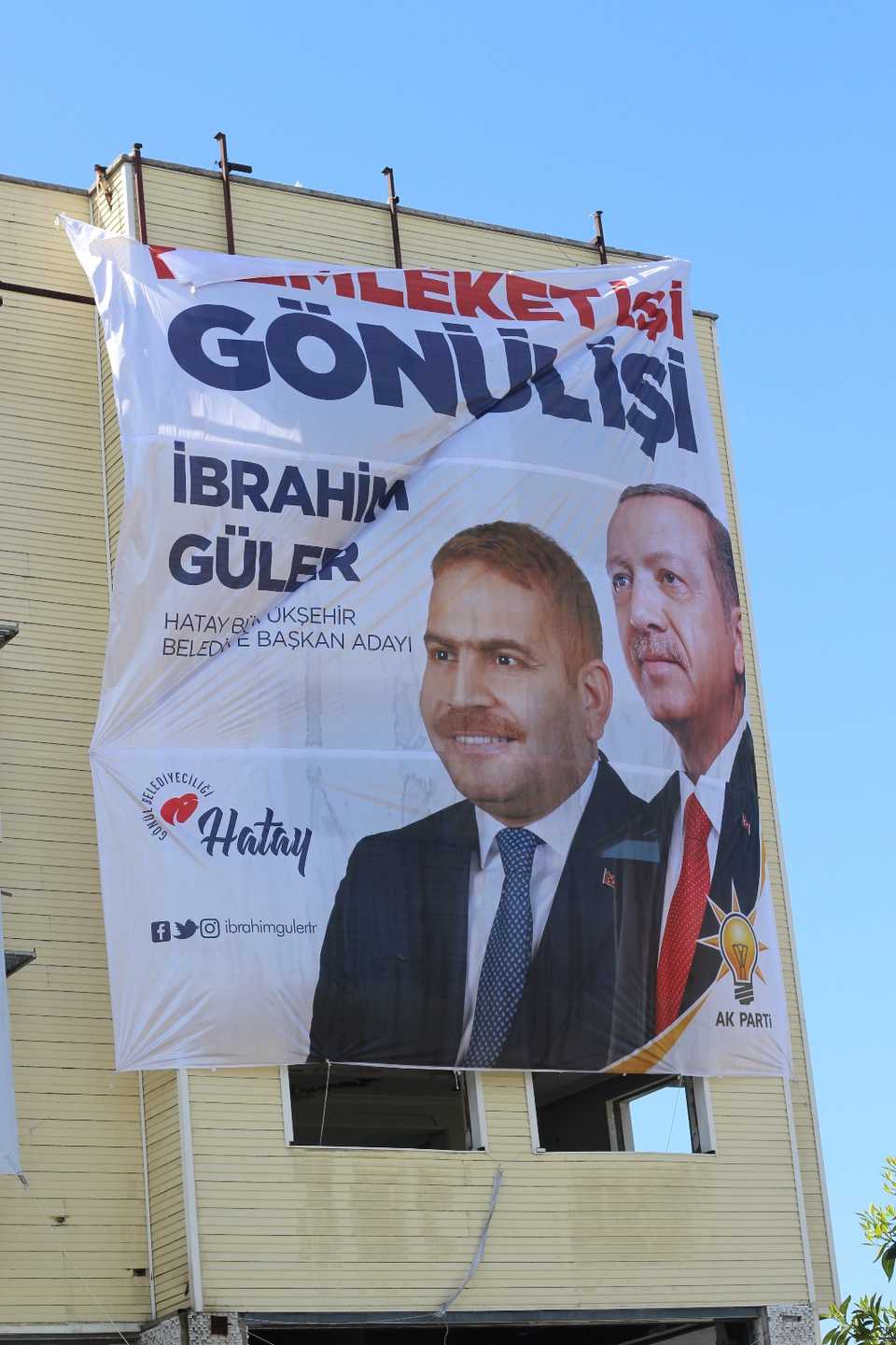
Historic Hatay
Hatay is the southernmost province of Turkey and became part of the Turkish Republic after a provincial referendum in 1939.
Hatay and its capital of Antakya (also known as Antioch) are famed for their ancient history dating back to the times of ‘Alexander the Great’ who laid the foundation of Antakya (which he named after his father and the coastal city of Iskenderun (named after Alexander himself).
Two of Jesus’ apostles are believed to be buried in Hatay.
The province has a sizeable Arab population, and Arabic makes up a significant proportion of the city’s soundscape. The province is host to 439,390 Syrian refugees in several cities and make up 27.33 percent of Hatay’s total 1.5 million population.
The majority of Hatay’s population lives in rural areas, but Antakya, Samandag and other cities have a strong CHP (Republican People’s Party) voter base. The CHP candidate won with41.2 percent, just 0.7 percent more than the AK Party candidate in the previous local elections in 2014. Lutfu Savas is again contesting the constituency for the CHP and Ibrahim Guler will be the AK Party’s new candidate.
Zeynep works at the Antakya Nedime Keser Public Education Center And Evening Art School – one of Hatay’s major cultural and educational schools supported by the Governance of Hatay – tells TRT World that Antakya needs greater infrastructure investment and better strategies for the integration of refugees.
“We are hosting hundred thousand Syrian refugees here. They had no other chance but to come and now we have to invest more in infrastructure and facilities for locals as well as Syrians to shape a better future together.”
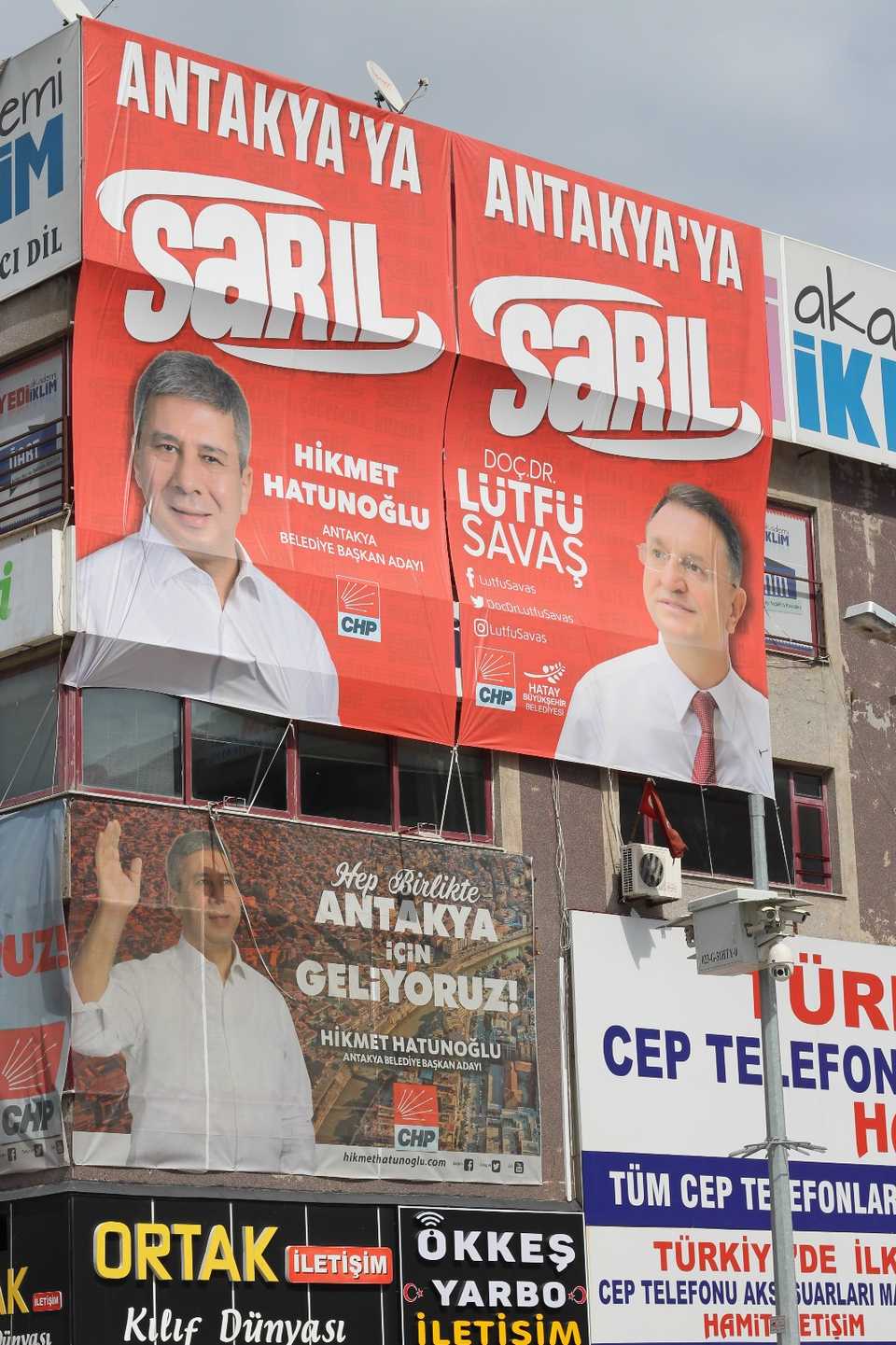
Diverse languages and people: Mardin
Over 300 kilometres east of Gaziantep lays the historic city of Mardin, with a local population of 800,00. Mardin is known for its old town and Turks, Kurds, Arabs and Assyrians form Mardin’s diverse cultural mosaic. Locals often speak up to three languages and peacefully coexisted for centuries on this land.
Its economy is based on tourism, agriculture and trade.
The predominant issue for Mardinians is security and terrorism from the PKK. The PKK and its Syrian affiliate, the YPG, use tunnels across its shared border with Syria to traffic in drugs and humans, as well as to transport arms.
Since 2018 the city has started recovering from terrorism after Turkey’s operations against the YPG and the PKK. The capital city’s former mayor, the HDP’s Ahmet Turk, was removed from office for links with PKK, and the Interior Ministry appointed Governor Mustafa Yaman, as a trustee in his place until the next election.
Mehmet Vecdi Kahraman is the AK Party’s candidate for this election, and Ahmet Turk will be the HDP’s candidate for Mardin.
“The HDP needs to cut its relations to the PKK,” a local Kurd named Davud who works as a high school director in Mardin’s old town tells TRT World.
“Even if the HDP and Ahmet Turk win elections again, without having their relations cut the HDP won’t have legal ground to govern the city.”

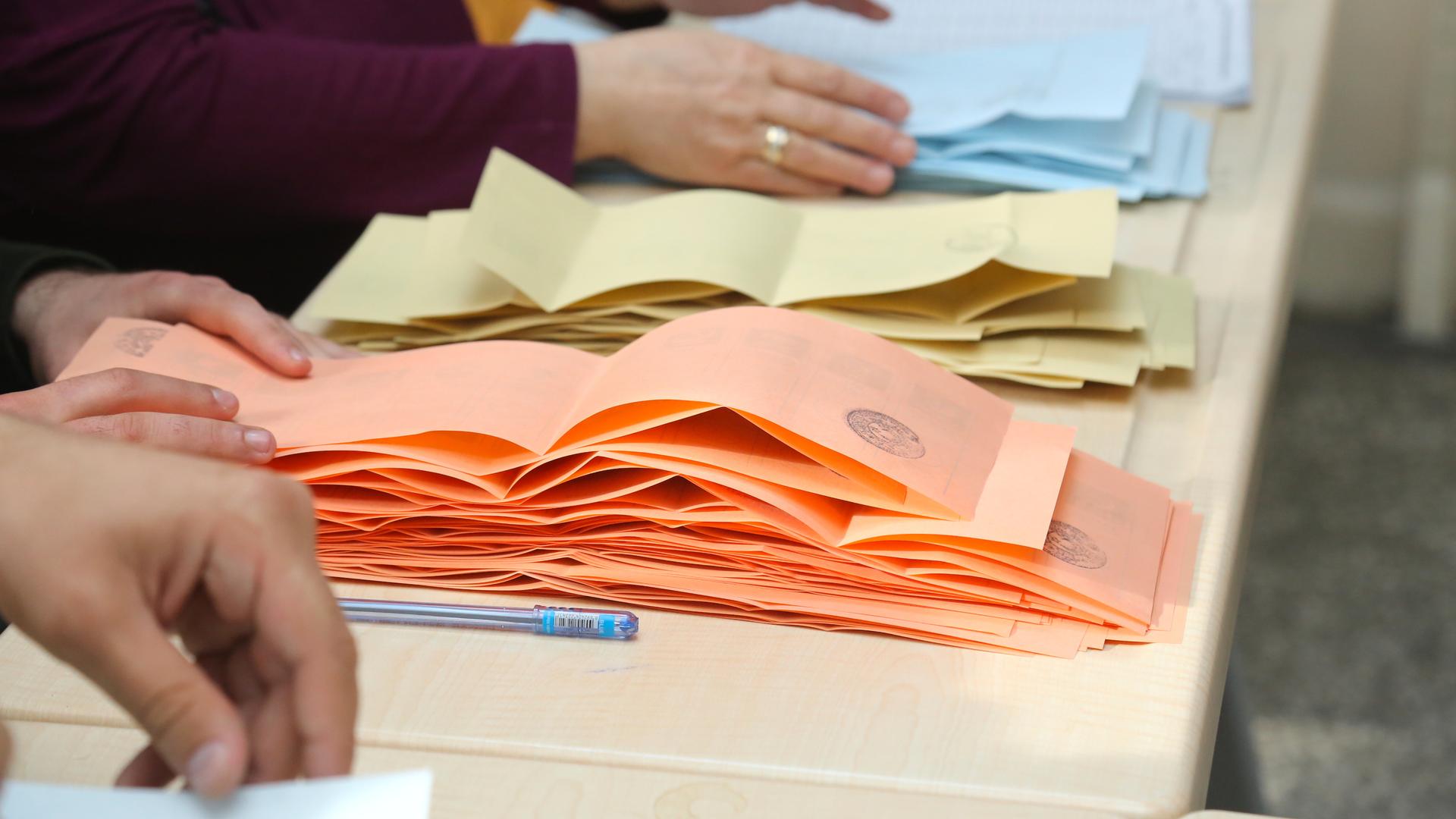








Discussion about this post